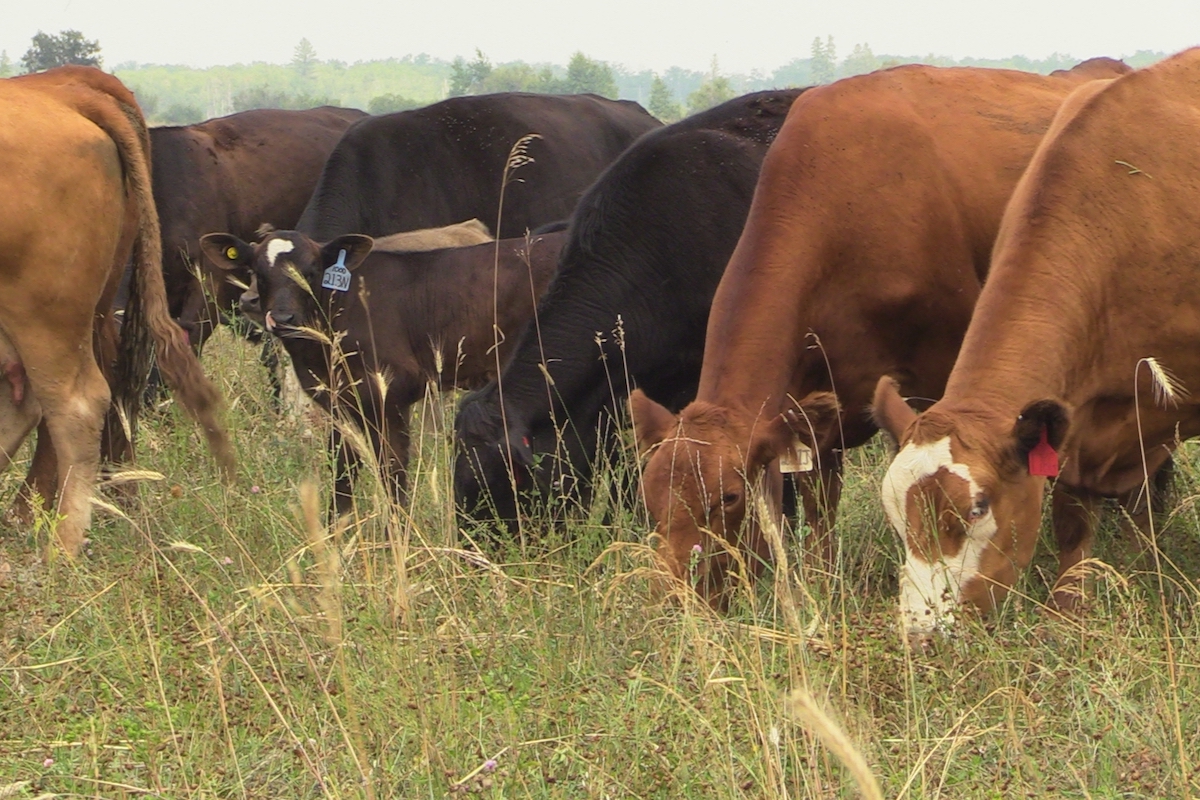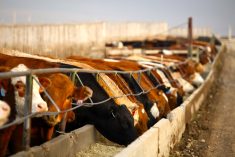With consultations only just out of the gate and the legislation awaiting second reading, the Alberta government already plans to amend Bill 6, its farm and ranch worker protection bill, for “greater clarity.”
While not mentioning recent vocal protests over the bill, provincial Labour Minister Lori Sigurdson announced Tuesday the bill will be amended to “make clear what was our intention all along — that farm families would be exempt from those laws, which were designed to protect paid employees.”
“To be clear, Bill 6 is not in any way going to affect children doing their chores, participating in 4-H, or learning the family business,” Agriculture Minister Oneil Carlier said in the same release.
Read Also

Beef industry weighs in on AAFC research cuts
The Canadian Cattle Association and Beef Cattle Research Council said cuts to federal research centres and programs will have long-term debilitating consequences for the beef industry.
“It does not prevent neighbours, relatives and friends from helping each other out during busy times. It does not apply to recreational activities such as riding horses or hunting on farmland.”
Bill 6, he said, is meant to “bring Alberta farm and ranch safety standards in line with other provinces, and ensure that if a wage-earning employee is injured or killed on the job, that person and their family have the same access to financial supports as employees in other sectors.”
The basic bill — so far mostly a handful of amendments and repeals for parts of existing labour and workplace safety legislation — passed first reading in the provincial legislature Nov. 17. Debate on second reading was adjourned Nov. 25, as the public consultation sessions got underway.
The bill is expected to lift the Occupation Health and Safety Act’s current exemptions for farm workers, effective Jan. 1, 2016, with OHS code technical requirements to take effect in 2017.
New workers’ compensation requirements for farm workers would also take effect Jan. 1, 2016, while the bill’s aspects relating to labour relations and employment standards code would take effect in spring 2016.
“It has never been our government’s intention to interfere with what family members, friends and neighbours have always done on the family farm,” Sigurdson said Tuesday.
The new amendments to Bill 6 announced Tuesday are expected to make clear that workers’ compensation coverage “would be required only for paid employees, with an option for farmers to extend coverage to unpaid workers like family members, neighbours and friends.”
The changes proposed Tuesday are also to make clear that OHS standards would apply “when a farm employs one or more paid employees at any time of the year.”
The consultation sessions now underway are expected to help form the basis of regulations to be developed by 2017 “to ensure the unique workplace characteristics of farms and ranches are recognized,” the province said Tuesday.
Registrations for all but one of the consultation sessions were full up late last week, but the province said Tuesday it’s “working with venues to increase capacity at each session to ensure more farmers and ranchers are able to attend and have their voices heard.”
As of Tuesday evening, seats were available for the consultation sessions in Medicine Hat (Friday), Vegreville (Dec. 8) and Olds (Dec. 9), all of which were previously booked solid. Sessions at Okotoks, Lethbridge and Leduc are full, while the final session in Athabasca (Dec. 14) also still has seats available.
An FAQ page on Bill 6, posted previously on the provincial Jobs, Skills, Training and Labour ministry website — in which the ministry had said Bill 6 would see the OHS Act apply to farm workers “regardless of whether or not the worker is paid… and regardless of the worker’s age” — has since been replaced with a “page not found” message.
The now-unavailable FAQ page had also said Bill 6’s planned OHS amendments would cover “children of farmers and ranchers who are helping out on the commercial operations of the farm.”
The ministry’s main page on Bill 6 gave information on the consultation sessions, but was also changed Tuesday evening to say there’s a “website update in progress.”
“Be heard”
Alberta’s wheat, barley, canola and pulse grower commissions on Monday put out a joint statement urging the province to delay its scheduled implementation of Bill 6 “in order to extend the consultation process.”
That said, the commissions on Monday also urged growers members to “speak out and be heard” at the upcoming consultation sessions and “continue to work actively with the government on the shaping of Bill 6.”
Alberta Barley chair Mike Ammeter on Monday noted the commissions said in September they “were ready to provide input before the specifics of Bill 6 were announced, to ensure farmers’ best interests were being represented; unfortunately, that process was never initiated.”
“The current government process is causing fear and uncertainty to grasp the industry,” Alberta Pulse Growers chair Allison Ammeter said in the same release. “Farmers can provide good input and are the subject matter experts on what will be most effective for their farm.”
Another group, the Western Canadian Wheat Growers, on Monday urged the provincial government to send Bill 6 back to committee for “study and real consultation with Alberta farmers.”
“It’s abundantly clear from these hastily-planned government town halls, producers have too many unanswered questions on the significant implications of Bill 6,” WCWG secretary-treasurer Matt Sawyer, a farmer at Acme, Alta., said Monday.
However, parts of Bill 6 written to come into force Jan. 1 suggests the government “is not prepared to have the bill studied in committee,” WCWG vice-president Stephen Vandervalk of Fort Macleod said in the same release. — AGCanada.com Network















